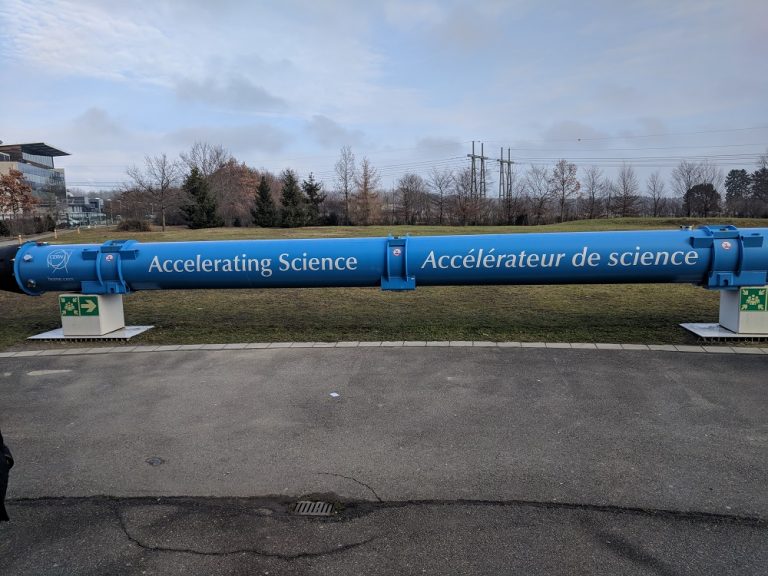In December, my family and I visited CERN, the European Centre for Nuclear Research. I found the whole experience fascinating, but what really struck me was how far the facility was stretching the limits of what we know about the universe. In 2012, physicists at CERN discovered a particle that they had been chasing for 50 years, the Higgs Boson, which cemented our understanding of how particles get their mass. The Higgs Boson particle is also known as the ‘God Particle’ because it gives other particles their mass. It could help us to understand how the universe began… and how it might end.

The Large Hadron Collider is the largest particle accelerator in the world. It collides particles such as protons at speeds of 99.9999991% of the speed of light. At this speed, it would take approximately 8 minutes to reach the sun from earth. It is 27km long, and uses 1232 magnets, each weighing 35 tonnes, to achieve these enormous speeds! The physicists at the Large Hadron Collider are working on finding new particles that could help us finally unite the two pillars of modern physics, Quantum Mechanics and General Relativity.

I also learnt some crazy things that I did not know were possible. Using the Super Proton Synchrotron, physicists send particles, called neutrinos, from Geneva, through the mountains at 99.9999991% of the speed of light for study in a lab in Gran Sasso, Italy! Amazingly, these particles travel through the Alps for 732km, in just nanoseconds! There was a great atmosphere at CERN, especially in the ‘Globe of Science and Innovation’. There were interactive spheres that you could touch and bring up information from. Every 15 minutes there was an immersive video, which you could listen to in the chair capsules about the beginning of the universe.
Going to the place where some of the most important discoveries ever have been made was mind-boggling. Our guide, Dr Sijin Qian, a professor in the University of Peking, who has also been working at CERN for 30 years, took us on a tour of the facilities. CERN is amazing; not just for the work it does, but the way it connects people. Scientists from all over the world, regardless of cultural differences, are united for the common goal of advancing science.



